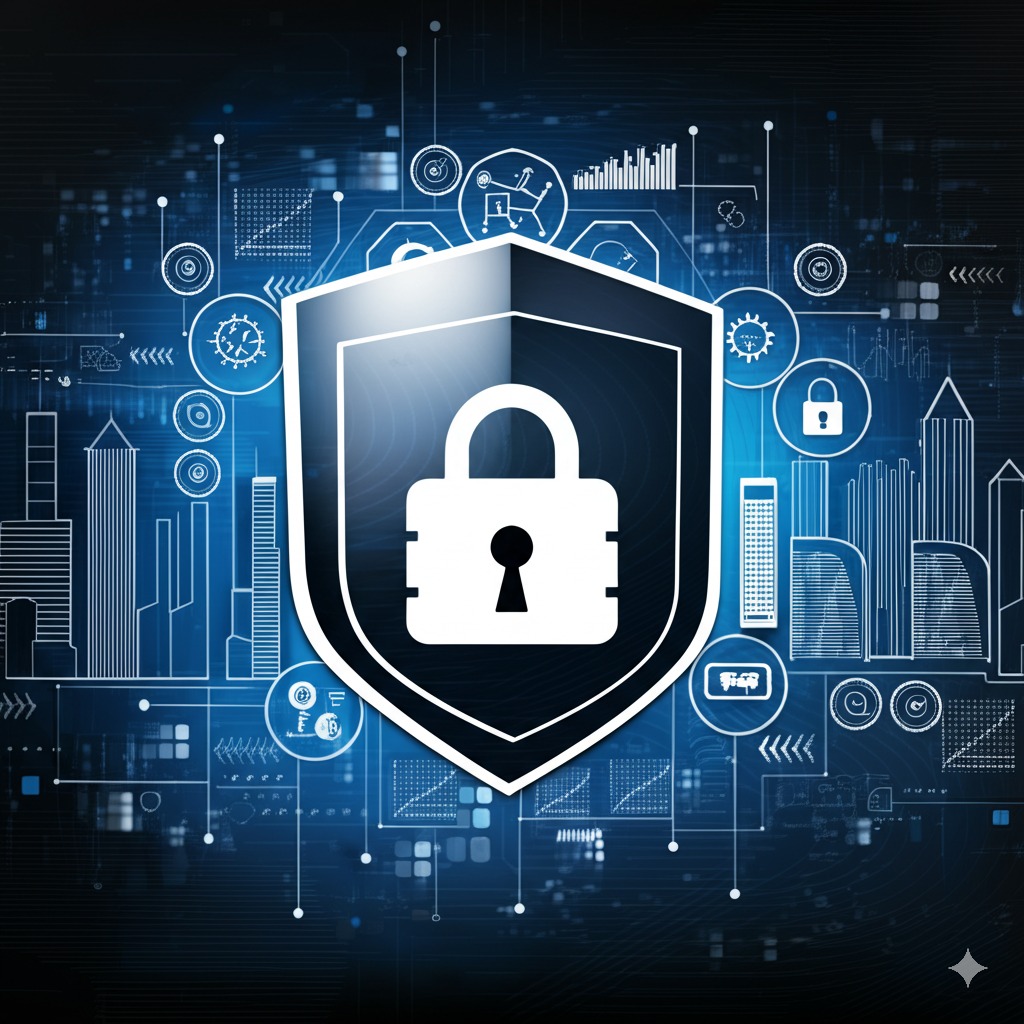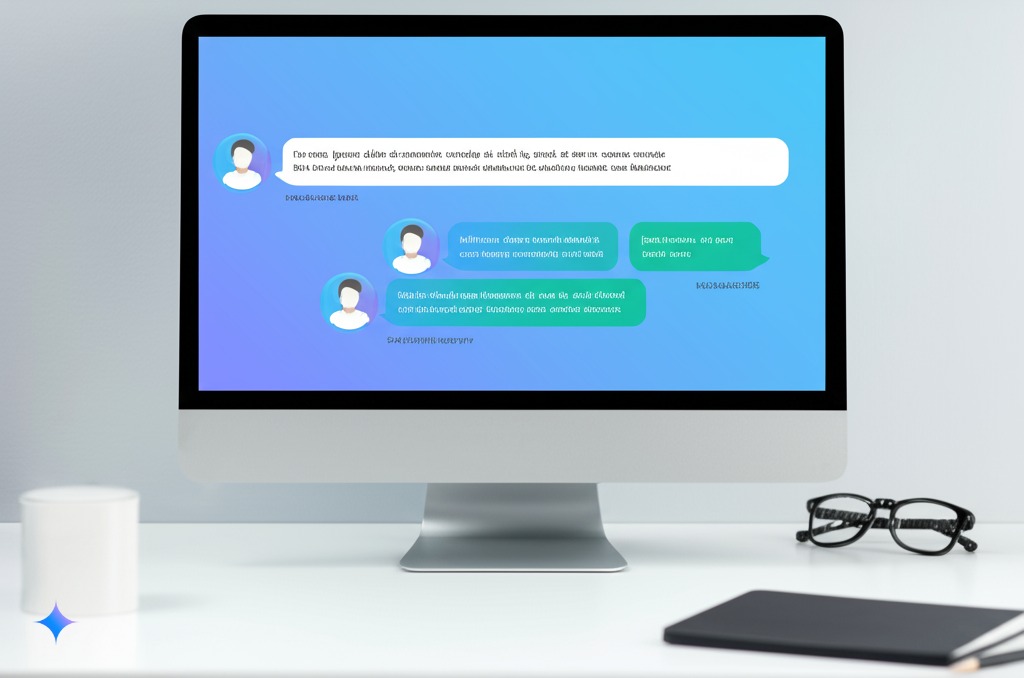
Cybersecurity for Atlanta Small Businesses - Your 2025 Protection Guide | TiltStack
Cybersecurity for Small Businesses: Your Essential 2025 Protection Guide for Atlanta
Let's be blunt: In today's digital landscape, cybersecurity isn't just an IT department concern; it's a fundamental business necessity. For small and medium-sized businesses (SMBs) navigating the dynamic Atlanta market, treating cybersecurity as an afterthought is like leaving your storefront unlocked on Peachtree Street. The risks are simply too high.
Think cyber threats only target large corporations? Think again. SMBs are increasingly becoming prime targets precisely because they often have fewer resources dedicated to security. This guide from TiltStack is designed to cut through the noise and provide Atlanta SMBs with a practical, actionable roadmap to protect their valuable digital assets in 2025 and beyond.
The Harsh Reality: Why Cybersecurity Can't Wait
Ignoring cybersecurity isn't just risky; it can be catastrophic. Imagine waking up to find:
- Your critical business data encrypted and held for ransom.
- Sensitive customer information (names, addresses, payment details) stolen and leaked online.
- Your website defaced or your entire network paralyzed, halting operations.
- Significant financial losses due to theft, recovery costs, and potential lawsuits.
- Irreparable damage to your hard-earned reputation within the Atlanta community.
This isn't fear-mongering; it's the unfortunate reality for many unprepared businesses.
The Stark Reality: Cybersecurity Threats Facing Atlanta SMBs (Recent Data)
Ignoring cybersecurity isn't just risky; it can be catastrophic, especially for small and medium-sized businesses navigating Atlanta's competitive landscape. Relying on luck is not a strategy. The data paints a clear, urgent picture based on recent, verified reports:
SMBs Are Significant Targets: Approximately 43% of all cyberattacks target small businesses. Furthermore, 46% of all cyber breaches impact businesses with fewer than 1,000 employees, putting most Atlanta SMBs squarely in the danger zone. (Sources: Accenture Cybercrime Study, Various Industry Reports)
The Staggering Cost of Breaches: The global average cost of a data breach hit $4.88 million in 2024. Crucially for smaller operations, the average impact for organizations with fewer than 500 employees surged to $3.31 million in 2024. The SBA confirms breaches can cost SMBs anywhere from $120,000 to $1.24 million per incident. (Sources: IBM Cost of a Data Breach Report 2024, State of IT Security in SMBs 2023-2024)
Increasingly Targeted: The U.S. Cybersecurity and Infrastructure Security Agency (CISA) consistently warns that SMBs are increasingly targeted and are three times more likely to be hit by cybercriminals than larger companies, often due to perceived weaker defenses despite holding valuable data. (Source: CISA Advisories & Resources)
Business Disruption is Certain (Survival Risk): While exact closure rates vary, the potential for severe disruption is undeniable. The 2024 IBM report highlights that lost business costs (like downtime, customer turnover, and reputation damage) represent the largest share of data breach expenses, significantly impacting an SMB's ability to operate and recover. (Source: IBM Cost of a Data Breach Report 2024)
This Isn't Just a National Trend – It's Happening Here in Atlanta:
While national statistics are alarming, the threat is very real for businesses operating in our city.
- Human Element & Phishing: Nationally, human error is involved in 68% of all breaches, often via phishing attacks (Source: [Verizon 2024 DBIR - Link to specific report if available, otherwise cite general DBIR findings]). This vulnerability is highly relevant for Atlanta businesses, demanding strong employee awareness training.
- Not Immune to Major Attacks: We only need to look back at the City of Atlanta's costly 2018 ransomware attack (over $17 million in recovery) or the more recent ransomware incident affecting Atlanta-based Artivion in December 2024 to see that sophisticated attacks impact organizations right here.
- Real-World Impact: The potential for a single breach to cripple a local family-owned retailer or professional service firm in Atlanta is a tangible risk that demands attention. (Source Context: PanaTe Experts, cscpas-llc)
- Local Resources: Recognizing the threat, programs like Georgia's CybersecurityEDGE are working to support local businesses, and Atlanta boasts a growing cybersecurity industry itself.
These findings underscore the critical importance of prioritizing cybersecurity for Atlanta's small business owners. Understanding the prevalence of attacks, the potential financial devastation, and the specific threats relevant to our local market is the essential first step towards building a resilient defense in 2025 and beyond.
The Evolving Cyber Threat Landscape for Atlanta Businesses
Cybercriminals are constantly innovating. Here are some key threats Atlanta SMBs face right now:
1. Ransomware: The Digital Hostage Crisis
- How it Works: Malicious software encrypts your crucial files (customer data, financial records, operational files). Attackers then demand a hefty ransom payment (often in cryptocurrency) for the decryption key. Sometimes, they also threaten to leak stolen data if you don't pay.
- Why SMBs are Vulnerable: Often lack robust backup solutions and the resources for advanced prevention, making them more likely to pay ransoms. Common entry points include phishing emails and unsecured remote access points.
2. Phishing & Spear Phishing: The Deceptive Lure
- How it Works: Cybercriminals send deceptive emails, text messages, or social media messages designed to trick employees into clicking malicious links, downloading infected attachments, or revealing sensitive login credentials. Spear phishing targets specific individuals or roles within a company with highly personalized messages.
- Why SMBs are Vulnerable: Employees may have less cybersecurity awareness training compared to larger organizations, making them more susceptible to these social engineering tactics.
3. Business Email Compromise (BEC): The Impersonation Scam
- How it Works: Attackers gain access to a business email account (often through phishing) or spoof a legitimate email address. They then impersonate executives or vendors to trick employees into making fraudulent wire transfers or revealing sensitive company information.
- Why SMBs are Vulnerable: Often have less stringent internal financial controls or verification processes compared to larger corporations.
4. IoT (Internet of Things) Vulnerabilities: The Unseen Entry Points
- How it Works: Many everyday office devices are now connected to the internet (printers, security cameras, smart thermostats, etc.). Often, these devices have weak default passwords or unpatched security flaws, providing an easy backdoor for attackers to access your network.
- Why SMBs are Vulnerable: IoT security is frequently overlooked during network setup and maintenance.
Your Cybersecurity Action Plan: Building Digital Defenses
Protecting your Atlanta business requires a proactive, multi-layered approach. Here are essential steps:
1. Employee Training: Your Human Firewall
Your employees are often the first line of defense – but also potentially the weakest link if untrained. Regular, engaging security awareness training is essential.
- Phishing Recognition: Teach employees how to spot suspicious emails, links, and attachments. Conduct regular phishing simulation tests to reinforce learning.
- Password Hygiene: Enforce strong, unique passwords for all accounts. Discourage password reuse. Promote the use of password managers.
- Social Engineering Awareness: Educate staff about tactics attackers use to manipulate people into divulging information or performing actions.
- Safe Browse Habits: Train employees on avoiding risky websites and downloading software only from trusted sources.
- Incident Reporting: Create a clear process for employees to report suspected security incidents immediately without fear of blame.
2. Implement a Multi-Layer Security Strategy (Defense-in-Depth)
No single security tool is foolproof. Layer your defenses for comprehensive protection:
- Endpoint Protection: Install reputable, business-grade antivirus and anti-malware software on all computers, servers, and mobile devices accessing company data. Keep definitions updated automatically.
- Identity & Access Management: Implement Multi-Factor Authentication (MFA) everywhere possible, especially for email, VPN access, financial systems, and cloud services. MFA adds a critical layer of security beyond just passwords.
- Network Security: Use strong firewalls to filter network traffic. Implement network segmentation to isolate critical systems; if one part of your network is compromised, segmentation can prevent the breach from spreading. Ensure secure Wi-Fi configurations.
- Patch Management: Regularly update all software – operating systems, applications, browsers, plugins – as soon as security patches are released. Vulnerability exploitation is a primary attack vector. Our maintenance services can streamline this crucial task.
3. Robust Data Backup and Recovery Strategy
Assume a breach could happen. How quickly can you recover?
- Follow the 3-2-1 Rule: Maintain 3 copies of your critical data, on 2 different types of storage media, with 1 copy stored securely offsite (e.g., in the cloud or a separate physical location).
- Regular Backups: Implement automated, regular backups (daily, if possible, for critical data).
- TEST Your Backups! Regularly test your backup restoration process to ensure you can actually recover your data when needed. An untested backup is unreliable.
- Disaster Recovery Plan (DRP): Develop a formal plan outlining the steps to take in the event of a major disruption (cyberattack, natural disaster, etc.) to restore operations quickly.
4. Professional Cybersecurity Assessment
You don't know what you don't know. An objective assessment can uncover hidden risks.
- What it Involves: A professional assessment typically includes vulnerability scanning, reviewing security policies and configurations, and identifying potential weaknesses in your defenses.
- Benefits: Provides a clear picture of your current security posture and a prioritized roadmap for improvement.
TiltStack: Your Atlanta Cybersecurity Partner
Navigating the complexities of cybersecurity can be daunting for SMBs. At TiltStack, we act as your trusted partner, translating technical requirements into practical, effective security solutions tailored for businesses right here in Atlanta. We don't just build websites – we help you build digital resilience.
Our cybersecurity-related services include:
- Comprehensive Security Audits: We assess your current infrastructure, policies, and procedures to identify vulnerabilities and provide actionable recommendations.
- Secure Web Hosting & SSL: Our hosting solutions prioritize security, including SSL certificates to encrypt data and build user trust.
- Website & App Maintenance: Our maintenance plans include regular software updates and security patching to protect against known vulnerabilities.
- Custom Security Solutions: We can design and implement security measures tailored to your specific risks and business needs.
- Incident Response Planning: We help you develop a plan to react quickly and effectively in the event of a security incident.
- Employee Training Resources: We can provide guidance and resources for effective cybersecurity awareness training.
- Digital Strategy Consulting: We integrate cybersecurity considerations into your overall digital strategy from the outset.
The Cost of Inaction vs. The Value of Investment
Investing in cybersecurity isn't an expense; it's an investment in your business's survival and future.
- Cost of Inaction: Potential financial ruin, loss of customer trust, reputational damage, business closure.
- Value of Investment: Peace of mind, business continuity, protection of valuable assets, enhanced customer trust, competitive advantage.
Practical Steps You Can Take Today
- Talk to Your Team: Start the conversation about cybersecurity awareness.
- Review Password Policies: Enforce strong, unique passwords and enable MFA wherever possible.
- Check Backup Status: Verify your backups are running regularly and test your ability to restore data.
- Update Critical Software: Ensure your operating systems and web browsers are up-to-date.
- Schedule a Professional Consultation: Get an expert assessment of your specific risks.
Your Digital Shield Starts Here
Cybersecurity isn't about creating impenetrable walls; it's about building smart, layered defenses and fostering a security-conscious culture. It's about empowering your Atlanta business to operate confidently in the digital world.
Ready to fortify your digital defenses? Contact TiltStack today for a free cybersecurity consultation. We'll help you assess your risks, understand your options, and build a security strategy that protects your business and supports your growth.
Don't wait for a breach to take action. Secure your digital future today!





















